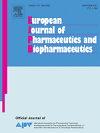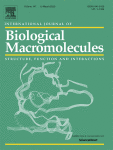404. Research laboratory
Head: Szilvia Bősze, Ph.D.
Address: Budapest, Pázmány P. sétány 1/A, 404.
Telefon: 06-1-372-2500
Fax: 06-1-372-2620
Members:
Szilvia Bősze, PhD; Research Associate Professor
Lakatos Levente, PhD student
Stipsicz Bence András, PhD student
Kiskó Mária, assistant
Former Ph.D. students:
Lilla Horváth, 2023
Gergely Kohut (co-supervisor: Beke-Somfai Tamás), 2021
Zuszsa Baranyai, 2018
Hajnalka Szabados (co-supervisor: Uray Katalin), 2015
Kata Horváti, 2009
The list of all PhD dissertations
M.Sc. students since 2017:
Dávid Szabó (co-supervisor: Uray Katalin)
Bence Széles (co-supervisor: Uray Katalin)
Bence András Stipsicz (co-supervisor: Szabó Ildikó, consultant: Sármay Gabriella)
Levente Lakatos (co-supervisor: Horváth Lilla, consultant: Sármay Gabriella)
Anna Lőrincz
Lilla Horváth
Alexandra Fauszt
B.Sc. students since 2017:
Zsombor Fölker (co-supervisor: Uray Katalin)
Anna Krisztina Frisch (co-supervisor: Uray Katalin)
Diána Éva Tóth (co-supervisor: Horváth Lilla)
Dávid Szabó (co-supervisor: Uray Katalin)
Bence András Stipsicz (co-supervisor: Horváti Kata, consultant: Sármay Gabriella)
Levente Lakatos (consultant: Sármay Gabriella)
Laura Laboda
Gábor Szigeti
Johanna Budai (co-supervisor: Baranyai Zsuzsa)
Zsófia Szabó
Gergely Réti
Dóra Illik (co-supervisor: Uray Katalin)
Máté Kovács
Aysa Dormaeva
Despite five decades of control and research programs tuberculosis (TB) remains the first cause of mortality due to a single pathogen. A third of the world population is believed to be latently infected with TB. Latent TB (LTBI) is an asymptomatic phase of the disease during which the bacilli persist within their hosts. The risk of developing active TB can be higher among newborns, seniors, HIV-positive patients, people with diabetes, cancer patients, organ transplant recipients, people undergoing treatment for autoimmune diseases. Therefore there is an urgent need to develop new diagnostics and agents active against TB.
The long-term aim of our research project is to improve the immunodiagnosis of LTBI, using peptide-based synthetic antigens. A detailed study of the promising synthetic antigens would be advantageous in order to make progress towards differentiating not only between TB infection and BCG vaccination, but also between LTBI and the early stage of active TB.
The futher aim of our research is the preparation and evaluation of new potential antimycobacterial agents. Considering that mycobacteria can survive in host cell its elimination could be more efficient with host cell directed delivery of chemoterapetic agents. To enhance the cellular uptake and the host cell specificity of the new and recently used chemotherapeutic agents different approaches will be developed. Due to the optimised and selective cellular uptake more effective therapy can be achieved.
Recent publications:

Horváth, L., Biri-Kovács, B., Baranyai, Z., Stipsicz, B., Méhes, E., Jezsó, B., Krátký, M., Vinšová, J., Bősze, S.:
New Salicylanilide Derivatives and Their Peptide Conjugates as Anticancer Compounds: Synthesis, Characterization, and In Vitro Effect on Glioblastoma. ACS OMEGA 9, 16927-16948. (2024)
DOI: 10.1021/acsomega.3c05727.
Link...
Finger V, Kucera T, Kafkova R, Muckova L, Dolezal R, Kubes J, Novak M, Prchal L, Lakatos L, Andrs M, Hympanova M, Marek J, Kufa M, Spiwok V, Soukup O, Mezeiova E, Janousek J, Nevosadova L, Benkova M, Kitson RRA, Kratky M, Bősze S, Mikusova K, Hartkoorn R, Roh J, Korabecny J.:
2,6-Disubstituted 7-(naphthalen-2-ylmethyl)-7H-purines as a new class of potent antitubercular agents inhibiting DprE1. EUR. J. MED. CHEM. 2023 Oct 5;258:115611.
DOI: 10.1016/j.ejmech.2023.115611.
Link...
Krátký M, Konečná K, Janďourek O, Diepoltová A, Vávrová P, Voxová B, Vejsová M, Bárta P, Bősze S.:
Insight into the Antibacterial Action of Iodinated Imine, an Analogue of Rafoxanide: a Comprehensive Study of Its Antistaphylococcal Activity. MICROBIOL. SPECTR. 11(3):e0306422 (2023).
DOI: 10.1128/spectrum.03064-22.
Link...

Horváth L. B.; Krátký, M; Pflégr, V; Méhes, E; Gyulai, G; Kohut, G; Babiczky, Á; Biri-Kovács, B; Baranyai, Zs; Vinšová, J; Bősze, Sz.:
Host cell targeting of novel antimycobacterial 4-aminosalicylic acid derivatives with tuftsin carrier peptides. EUR. J. PHARM. BIOPHARM. 174: 111-130. (2022).
DOI: 10.1016/j.ejpb.2022.03.009
Link...
Horváti K, Fodor K, Pályi B, Henczkó J, Balka G, Gyulai G, Kiss É, Biri- Kovács B, Senoner Z, Bősze S.:
Novel Assay Platform to Evaluate Intracellular Killing of Mycobacterium tuberculosis: In Vitro and In Vivo Validation. FRONT. IMMUNOL. 12:750496 (2021).
DOI: 10.3389/fimmu.2021.750496.
Link...

Baranyai, Zs; Biri-Kovács, B; Krátký, M; Szeder, B; Debreczeni, M L; Budai, J; Kovács, B; Horváth, L; Pári, E; Németh, Zs.; Cervenak, L.; Zsila, F.; Méhes, E.; Kiss, É.; Vinsova, J.; Bősze, Sz.:
Cellular Internalization and Inhibition Capacity of New Anti-Glioma Peptide Conjugates: Physicochemical Characterization and Evaluation on Various Monolayer- and 3D-Spheroid-Based in Vitro Platforms. J. MED. CHEM. 64: 6 pp. 2982-3005., 24 p. (2021)
DOI: 10.1021/acs.jmedchem.0c01399
Link...

Boulhaoua, M.; Pasinszki, T.; Torvisco, A.; Oláh-Szabó, R.; Bősze, Sz.; Csámpai, A.:
Synthesis, structure and in vitro antiproliferative effects of alkyne-linked 1,2,4-thiadiazole hybrids including erlotinib- and ferrocene-containing derivatives. RSC ADVANCES 11 : 46 pp. 28685-28697., 13 p. (2021)
DOI: 10.1039/D1RA05095H
Link...

Biri-Kovács B, Adorján A, Szabó I, Szeder B, Bősze Sz, Mező G:
Structure-Activity Relationship of HER2 Receptor Targeting Peptide and Its Derivatives in Targeted Tumor Therapy.
Biomolecules 10(2), 183. (2020)
DOI: 10.3390/biom10020183
Link...

Bősze Sz, Zsila F, Biri-Kovács B, Szeder B, Majer Zs, Hudecz F, Uray K:
Tailoring uptake efficacy of HSV-1 gD derived carrier peptides.
Biomolecules 10(5), 721 (2020)
DOI: 10.3390/biom10050721
Link...

Krátký M, Baranyai Zs, ©těpánková ©, Svrčková K, ©varcová, M, Stolaříková J, Horváth L, Bősze Sz, Vinąová J:
N-Alkyl-2-[4-(trifuoromethyl)benzoyl]hydrazine-1-carboxamides and Their Analogues: Synthesis and Multitarget Biological Activity.
Molecules, 25(10), 2268 (2020)
DOI: 10.3390/molecules25102268
Link...

Zsila, F.; Bősze, Sz.; Beke-Somfai, T:
Interaction of antitubercular drug candidates with α 1-acid glycoprotein produced in pulmonary granulomas.
International Journal of Biological Macromolecules, 147, 1318. (2020)
DOI: 10.1016/j.ijbiomac.2019.10.096
Link...
Ábrahám Á, Baranyai Zs, Gyulai G, Pári E, Horváti K, Bősze Sz, Kiss É (2016)
Comparative analysis of new peptide conjugates of antitubercular drug candidates-model membrane and in vitro studies.
Colloids Surf B Biointerfaces. 28; 147: 106-115. [IF: 3.902]
Horváti K, Bősze Sz, Gideon HP, Bacsa B, Szabó TG, Goliath R, Rangaka MX, Hudecz F, Wilkinson RJ, Wilkinson KA (2016)
Population tailored modification of tuberculosis specific interferon-gamma release assay,
J Infection 72:179-188. [IF: 4.441] (citations: 1)
Bősze Sz, Hudecz F (2016)
Proteins and peptides for the immunodiagnosis and therapy of Mycobacterium tuberculosis infections
Amino Acids, Peptides and Proteins, 40, pp. 146-198.
DOI: 10.1039/9781782622680-00146
Baranyai Z, Krátký M, Vinšová J, Szabó N, Senoner Z, Horváti K, Stolaříková J, Dávid S, Bősze Sz (2015)
Combating highly resistant emerging pathogen Mycobacterium abscessus and Mycobacterium tuberculosis with novel salicylanilide esters and carbamates.
Eur J Med Chem. 101:692-704. [IF: 3.447]
Krátký M, Bősze Sz, Baranyai Z, Szabó I, Stolaříková J, Paraskevopoulos G, Vinšová (2015) J. Synthesis and in vitro biological evaluation of 2-(phenylcarbamoyl)phenyl 4-substituted benzoates
Bioorg Med Chem. 23(4):868-75. [IF: 2.951]
Horváti K, Bacsa B, Szabó N, Fodor K, Balka G, Rusvai M, Kiss É, Mező G, Grolmusz V, Vértessy B, Hudecz F, Bősze Sz (2015)
Antimycobacterial activity of peptide conjugate of pyridopyrimidine derivative against Mycobacterium tuberculosis in a series of in vitro and in vivo models.
Tuberculosis (Edinb). 95:S207-211 [IF: 3.503]
Horváti K, Bacsa B, Kiss E, Gyulai G, Fodor K, Balka G, Rusvai M, Szabó E, Hudecz F, Bősze Sz (2014)
Nanoparticle encapsulated lipopeptide conjugate of antitubercular drug isoniazid: in vitro intracellular activity and in vivo efficacy in a Guinea pig model of tuberculosis.
Bioconjug Chem. 25(12):2260-2268. [IF: 4.821]
Kiss É, Gyulai G, Pénzes CB, Idei M, Horváti K, Bacsa B, Bősze Sz (2014)
Tunable surface modification of PLGA nanoparticles carrying new antitubercular drug candidate.
Colloid Surface A. 458: 178-186. [IF: 2.354]
M.Sc. students since 2017:
Dávid Szabó (co-supervisor: Uray Katalin)
Bence Széles (co-supervisor: Uray Katalin)
Bence András Stipsicz (co-supervisor: Szabó Ildikó, consultant: Sármay Gabriella)
Levente Lakatos (co-supervisor: Horváth Lilla, consultant: Sármay Gabriella)
Anna Lőrincz
Lilla Horváth
Alexandra Fauszt
B.Sc. students since 2017:
Zsombor Fölker (co-supervisor: Uray Katalin)
Anna Krisztina Frisch (co-supervisor: Uray Katalin)
Diána Éva Tóth (co-supervisor: Horváth Lilla)
Dávid Szabó (co-supervisor: Uray Katalin)
Bence András Stipsicz (co-supervisor: Horváti Kata, consultant: Sármay Gabriella)
Levente Lakatos (consultant: Sármay Gabriella)
Laura Laboda
Gábor Szigeti
Johanna Budai (co-supervisor: Baranyai Zsuzsa)
Zsófia Szabó
Gergely Réti
Dóra Illik (co-supervisor: Uray Katalin)
Máté Kovács
Aysa Dormaeva
Despite five decades of control and research programs tuberculosis (TB) remains the first cause of mortality due to a single pathogen. A third of the world population is believed to be latently infected with TB. Latent TB (LTBI) is an asymptomatic phase of the disease during which the bacilli persist within their hosts. The risk of developing active TB can be higher among newborns, seniors, HIV-positive patients, people with diabetes, cancer patients, organ transplant recipients, people undergoing treatment for autoimmune diseases. Therefore there is an urgent need to develop new diagnostics and agents active against TB.
The long-term aim of our research project is to improve the immunodiagnosis of LTBI, using peptide-based synthetic antigens. A detailed study of the promising synthetic antigens would be advantageous in order to make progress towards differentiating not only between TB infection and BCG vaccination, but also between LTBI and the early stage of active TB.
The futher aim of our research is the preparation and evaluation of new potential antimycobacterial agents. Considering that mycobacteria can survive in host cell its elimination could be more efficient with host cell directed delivery of chemoterapetic agents. To enhance the cellular uptake and the host cell specificity of the new and recently used chemotherapeutic agents different approaches will be developed. Due to the optimised and selective cellular uptake more effective therapy can be achieved.
The long-term aim of our research project is to improve the immunodiagnosis of LTBI, using peptide-based synthetic antigens. A detailed study of the promising synthetic antigens would be advantageous in order to make progress towards differentiating not only between TB infection and BCG vaccination, but also between LTBI and the early stage of active TB. The futher aim of our research is the preparation and evaluation of new potential antimycobacterial agents. Considering that mycobacteria can survive in host cell its elimination could be more efficient with host cell directed delivery of chemoterapetic agents. To enhance the cellular uptake and the host cell specificity of the new and recently used chemotherapeutic agents different approaches will be developed. Due to the optimised and selective cellular uptake more effective therapy can be achieved.
Recent publications:

Horváth, L., Biri-Kovács, B., Baranyai, Z., Stipsicz, B., Méhes, E., Jezsó, B., Krátký, M., Vinšová, J., Bősze, S.:
New Salicylanilide Derivatives and Their Peptide Conjugates as Anticancer Compounds: Synthesis, Characterization, and In Vitro Effect on Glioblastoma. ACS OMEGA 9, 16927-16948. (2024)
DOI: 10.1021/acsomega.3c05727.
Link...
Finger V, Kucera T, Kafkova R, Muckova L, Dolezal R, Kubes J, Novak M, Prchal L, Lakatos L, Andrs M, Hympanova M, Marek J, Kufa M, Spiwok V, Soukup O, Mezeiova E, Janousek J, Nevosadova L, Benkova M, Kitson RRA, Kratky M, Bősze S, Mikusova K, Hartkoorn R, Roh J, Korabecny J.:
2,6-Disubstituted 7-(naphthalen-2-ylmethyl)-7H-purines as a new class of potent antitubercular agents inhibiting DprE1. EUR. J. MED. CHEM. 2023 Oct 5;258:115611.
DOI: 10.1016/j.ejmech.2023.115611.
Link...
Krátký M, Konečná K, Janďourek O, Diepoltová A, Vávrová P, Voxová B, Vejsová M, Bárta P, Bősze S.:
Insight into the Antibacterial Action of Iodinated Imine, an Analogue of Rafoxanide: a Comprehensive Study of Its Antistaphylococcal Activity. MICROBIOL. SPECTR. 11(3):e0306422 (2023).
DOI: 10.1128/spectrum.03064-22.
Link...

Horváth L. B.; Krátký, M; Pflégr, V; Méhes, E; Gyulai, G; Kohut, G; Babiczky, Á; Biri-Kovács, B; Baranyai, Zs; Vinšová, J; Bősze, Sz.:
Host cell targeting of novel antimycobacterial 4-aminosalicylic acid derivatives with tuftsin carrier peptides. EUR. J. PHARM. BIOPHARM. 174: 111-130. (2022).
DOI: 10.1016/j.ejpb.2022.03.009
Link...
Horváti K, Fodor K, Pályi B, Henczkó J, Balka G, Gyulai G, Kiss É, Biri- Kovács B, Senoner Z, Bősze S.:
Novel Assay Platform to Evaluate Intracellular Killing of Mycobacterium tuberculosis: In Vitro and In Vivo Validation. FRONT. IMMUNOL. 12:750496 (2021).
DOI: 10.3389/fimmu.2021.750496.
Link...

Baranyai, Zs; Biri-Kovács, B; Krátký, M; Szeder, B; Debreczeni, M L; Budai, J; Kovács, B; Horváth, L; Pári, E; Németh, Zs.; Cervenak, L.; Zsila, F.; Méhes, E.; Kiss, É.; Vinsova, J.; Bősze, Sz.:
Cellular Internalization and Inhibition Capacity of New Anti-Glioma Peptide Conjugates: Physicochemical Characterization and Evaluation on Various Monolayer- and 3D-Spheroid-Based in Vitro Platforms. J. MED. CHEM. 64: 6 pp. 2982-3005., 24 p. (2021)
DOI: 10.1021/acs.jmedchem.0c01399
Link...

Boulhaoua, M.; Pasinszki, T.; Torvisco, A.; Oláh-Szabó, R.; Bősze, Sz.; Csámpai, A.:
Synthesis, structure and in vitro antiproliferative effects of alkyne-linked 1,2,4-thiadiazole hybrids including erlotinib- and ferrocene-containing derivatives. RSC ADVANCES 11 : 46 pp. 28685-28697., 13 p. (2021)
DOI: 10.1039/D1RA05095H
Link...

Biri-Kovács B, Adorján A, Szabó I, Szeder B, Bősze Sz, Mező G:
Structure-Activity Relationship of HER2 Receptor Targeting Peptide and Its Derivatives in Targeted Tumor Therapy.
Biomolecules 10(2), 183. (2020)
DOI: 10.3390/biom10020183
Link...

Bősze Sz, Zsila F, Biri-Kovács B, Szeder B, Majer Zs, Hudecz F, Uray K:
Tailoring uptake efficacy of HSV-1 gD derived carrier peptides.
Biomolecules 10(5), 721 (2020)
DOI: 10.3390/biom10050721
Link...

Krátký M, Baranyai Zs, ©těpánková ©, Svrčková K, ©varcová, M, Stolaříková J, Horváth L, Bősze Sz, Vinąová J:
N-Alkyl-2-[4-(trifuoromethyl)benzoyl]hydrazine-1-carboxamides and Their Analogues: Synthesis and Multitarget Biological Activity.
Molecules, 25(10), 2268 (2020)
DOI: 10.3390/molecules25102268
Link...

